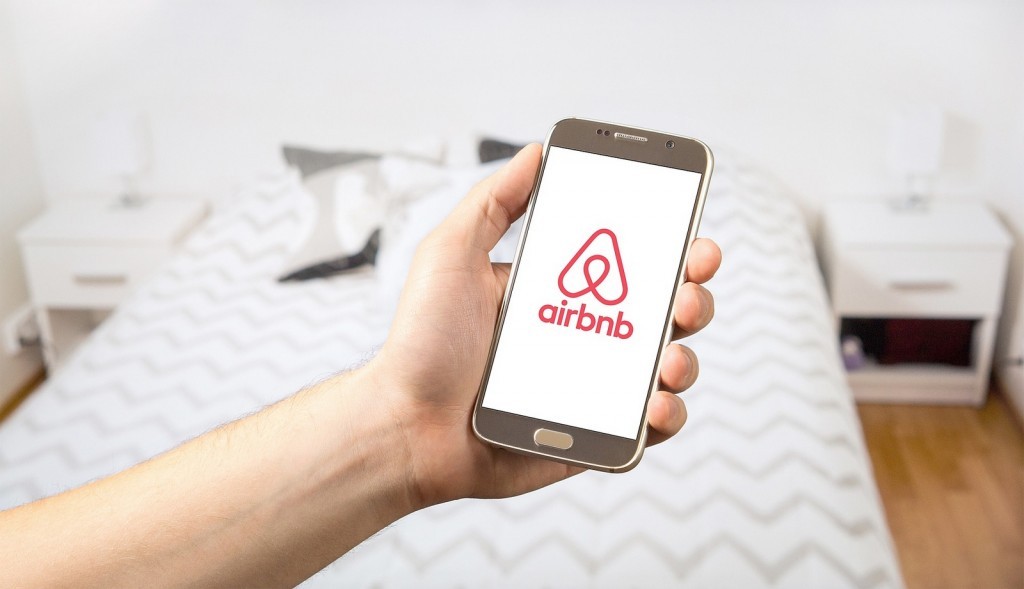
What makes the sharing economy so revolutionary?

What accommodation business had no hotels, no receptionists, no beds, no cleaning staff, yet still scaled to more than 150 million paying guests every year? That would be Airbnb.
The company, which began in 2008, was a pioneering startup in the sharing economy; a movement that promotes collaboration between people and the sharing and reuse of resources that would otherwise go to waste, usually through an online platform.
It’s a broad term that incorporates a wide range of startups and concepts. Alongside Airbnb there’s Uber, another household name that helps people share their cars and time for cash. Other platforms have a more collaborative focus, like Barcelona’s Sharify, which lets people share moments and events for members of the public to join.
But how is the sharing economy changing things for the better and how are startups revolutionising the way people work together online?
The traditional economy versus the sharing economy
Traditionally, companies make a profit on their products and services by offering a limited supply of something to a market that needs it. Of course, in order for a product or service to be scarce (and therefore profitable), a business must be able to control the supply of it in some way. Patents exist for this reason, granting companies or entrepreneurs legal ownership of an invention, system or process – but they only work when a concept is unique.
When an entity is selling something more generic like trousers, drinks, or accommodation, it needs to control the supply in another way. For this reason, companies produce brands, exploiting the concept of scarcity by selling something that only it can sell. Levi jeans, Coca Cola, and Apple iPhones, for example, all have a certain prestige, quality or reputation that people value. While there might be many other companies selling something similar, it is the brand that people pay for – it is, in effect, a proxy for scarcity.
Companies operating and profiting in the sharing economy differ because their model is based on abundance rather than scarcity. While brand values are important to platforms operating in this way, they are there to standardise services for paying customers, rather than to make them exclusive.
Going back to our first example of Airbnb, the company was able to scale so quickly because it did not own a single hotel. Instead of having to build, purchase or lease property in order to expand, it only needed a new host to sign up to its platform. While the profits from each b’nb stay are small compared to, say, the Ritz in London, Airbnb scales because it has a large volume of guests and much lower overheads.
Over the last few years Airbnb has purchased property and acquired a range of different service providers to improve and diversify its own offering, but that came long after it became a multi-billion-dollar company.
The sharing economy allows us to maximise resources
One of the reasons the sharing economy appeals to people so much is that it allows us to make the most of our resources, especially then they are not being used.
This is becoming increasingly important when you consider that there are more than seven billion people on the planet. Most of us have grown up in societies that encourage us to buy things, collect things, and then discard them when they’re no longer useful. At the same time, we are very aware of the earth’s limited resources, the wealth divide, and the impact of mass production and the disposable nature of our products on the environment.
Startups operating in the sharing economy allow us to buy fewer things, share more, and – in some cases – benefit financially at the same time.
Lendi, for example, is a startup that recently launched in Barcelona. The app helps people to borrow useful household items from their neighbours. Rather than buying a new drill, you can borrow one from someone closeby. Rather than buying plastic chairs for your party, you can see if anyone has some spares they can lend you. And rather than throwing out those books, it lets you pass them on to someone who wants them.
Yugo, Barcelona’s eco-friendly scooter sharing service, is a startup that operates in the on-demand sharing space, offering riders the option to use its bikes and park anywhere within the city, cheaply and conveniently.
Daysk, also from Barcelona, provides an office space-sharing service specifically for B2B users looking to booking meeting rooms on demand. Not only is the service useful for business travellers in a pinch, freelancers and digital nomads, it also helps established companies leverage underutilized space and generate another revenue stream.
Garage App is an Uber-like service that helps people share and monetise their unused parking spaces. A lot of the pollution in the city is caused by people searching for parking spaces – so this app not only helps people find a space, but it reduces carbon emissions.
And Airbnb, our most famous example, offers people the chance to rent out their spare rooms to travellers in exchange for some extra cash.
Of course, there are hundreds of other apps and platforms that follow this model. And while we might not yet be used to collaboration and sharing, it certainly makes a lot of sense. As more startups come on the scene, we will see the sharing economy start to boom – and that can only be a good thing for prices, competition, and our planet.
Talk to our team to learn more about our Master’s in Digital Entrepreneurship programme and discover another sharing economy initiative called Coworkation – an organisation that helps location independent entrepreneurs and digital nomads work and live together in beautiful locations all around the world.



